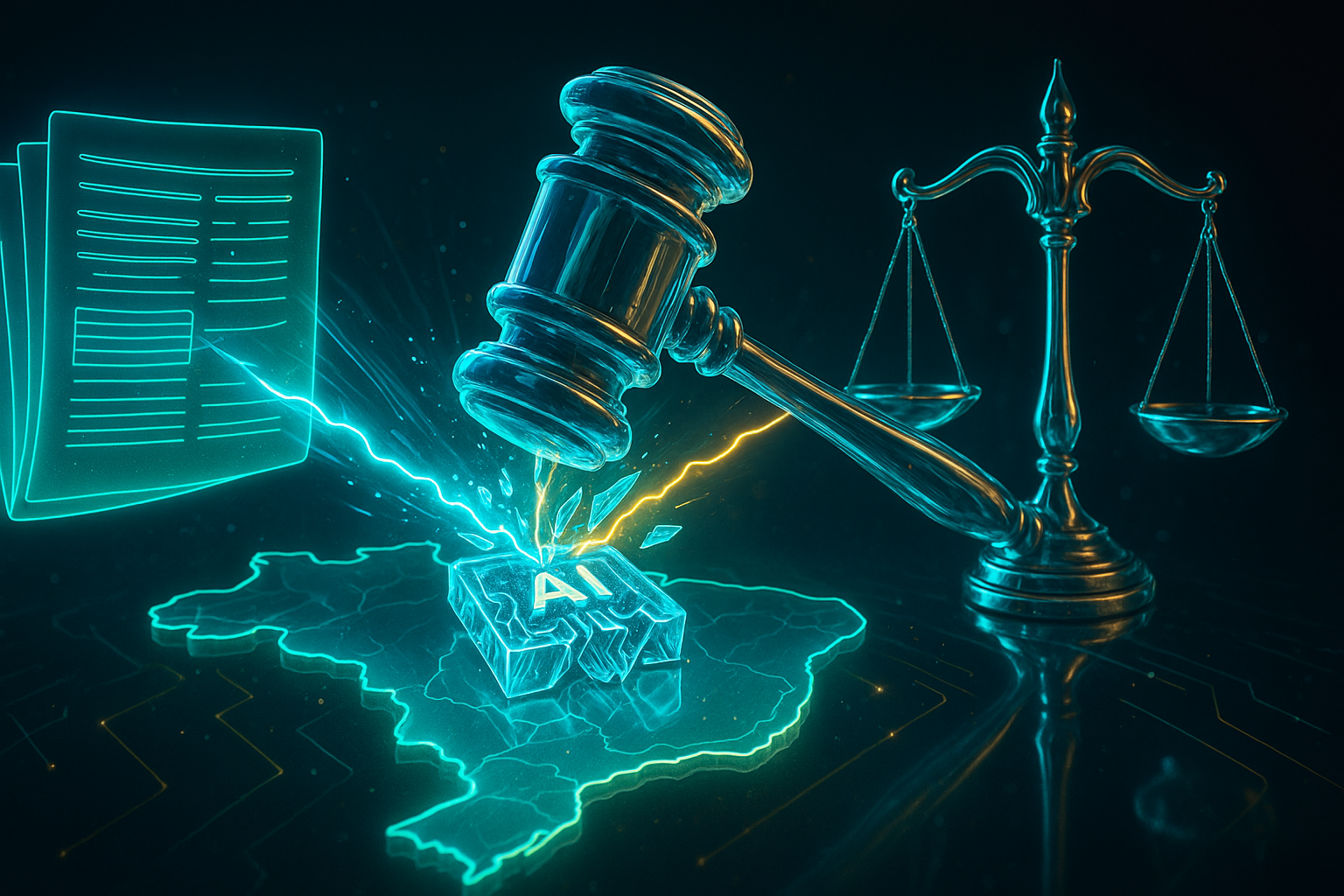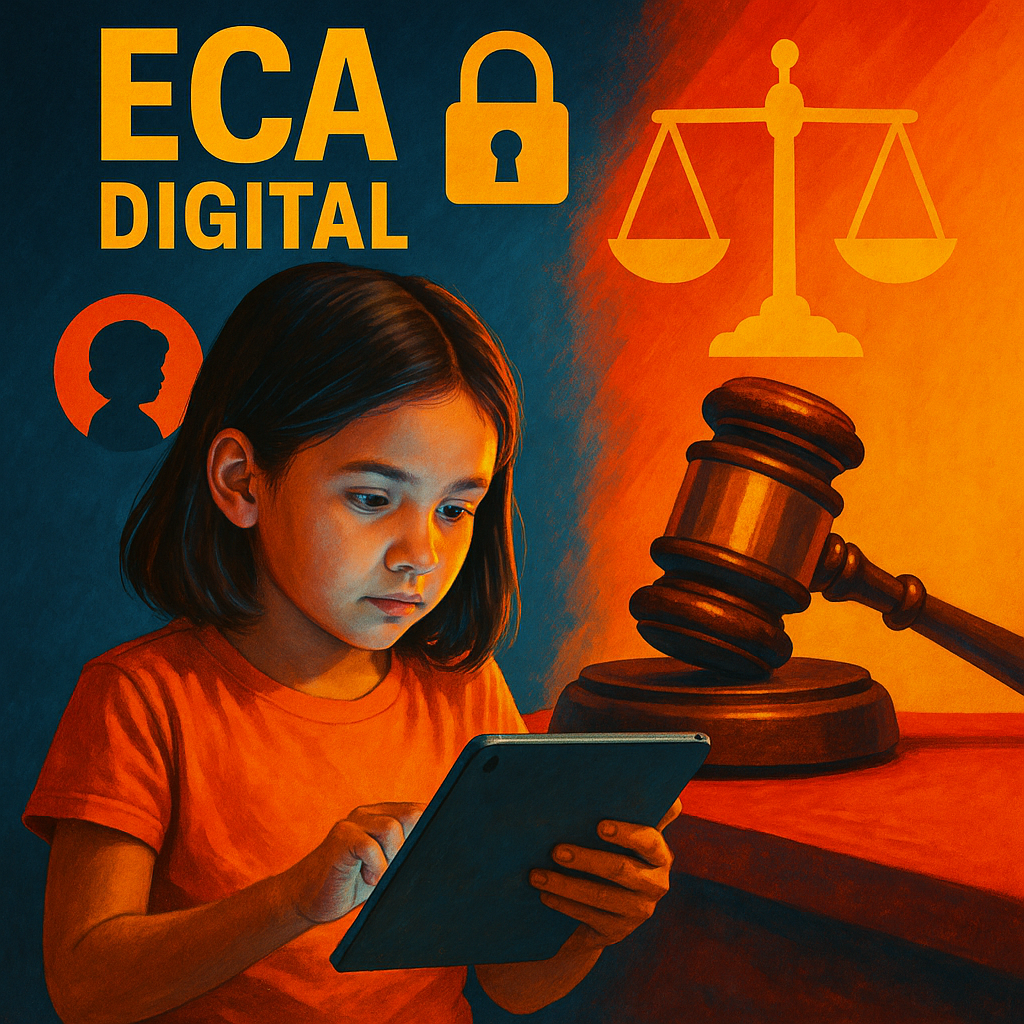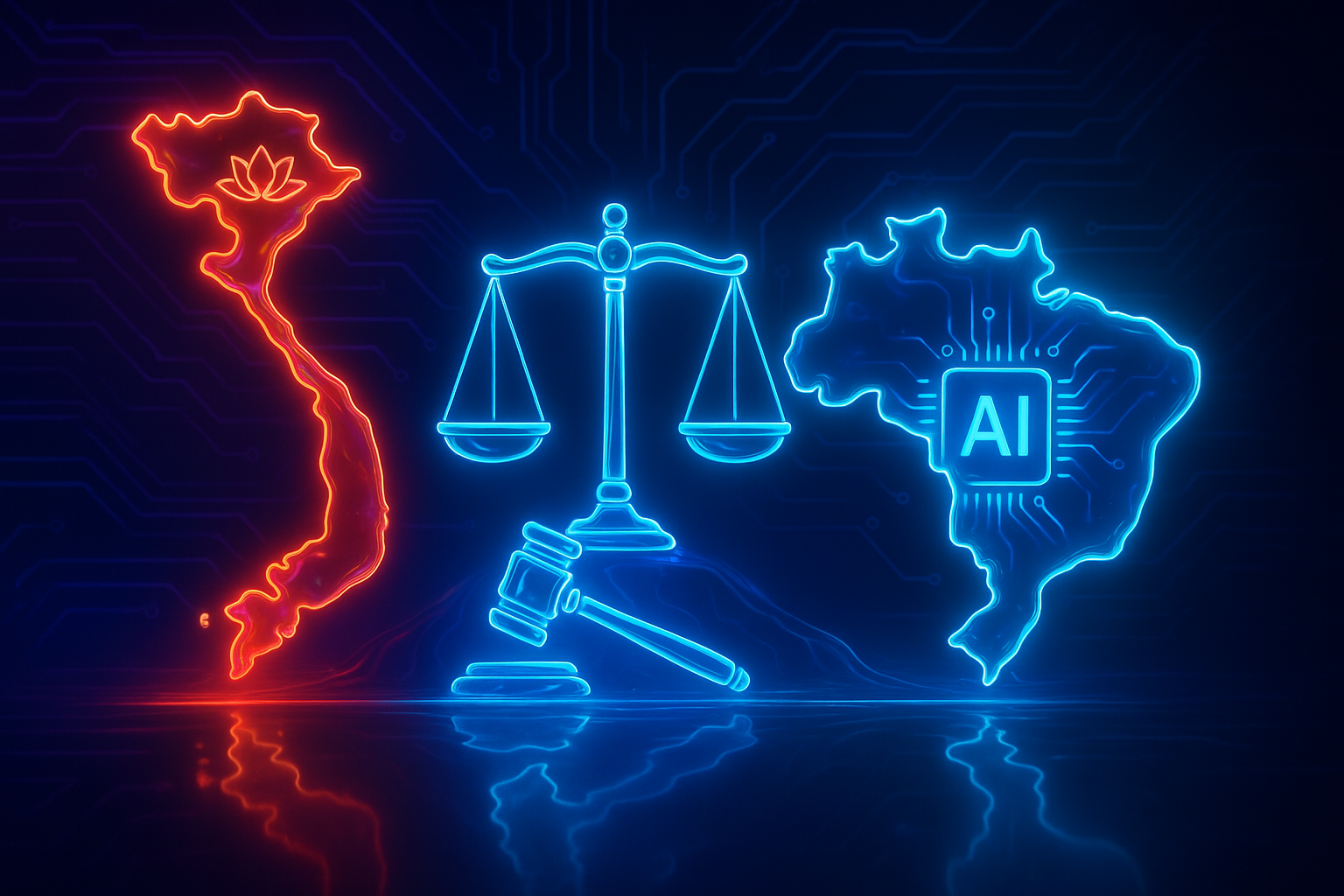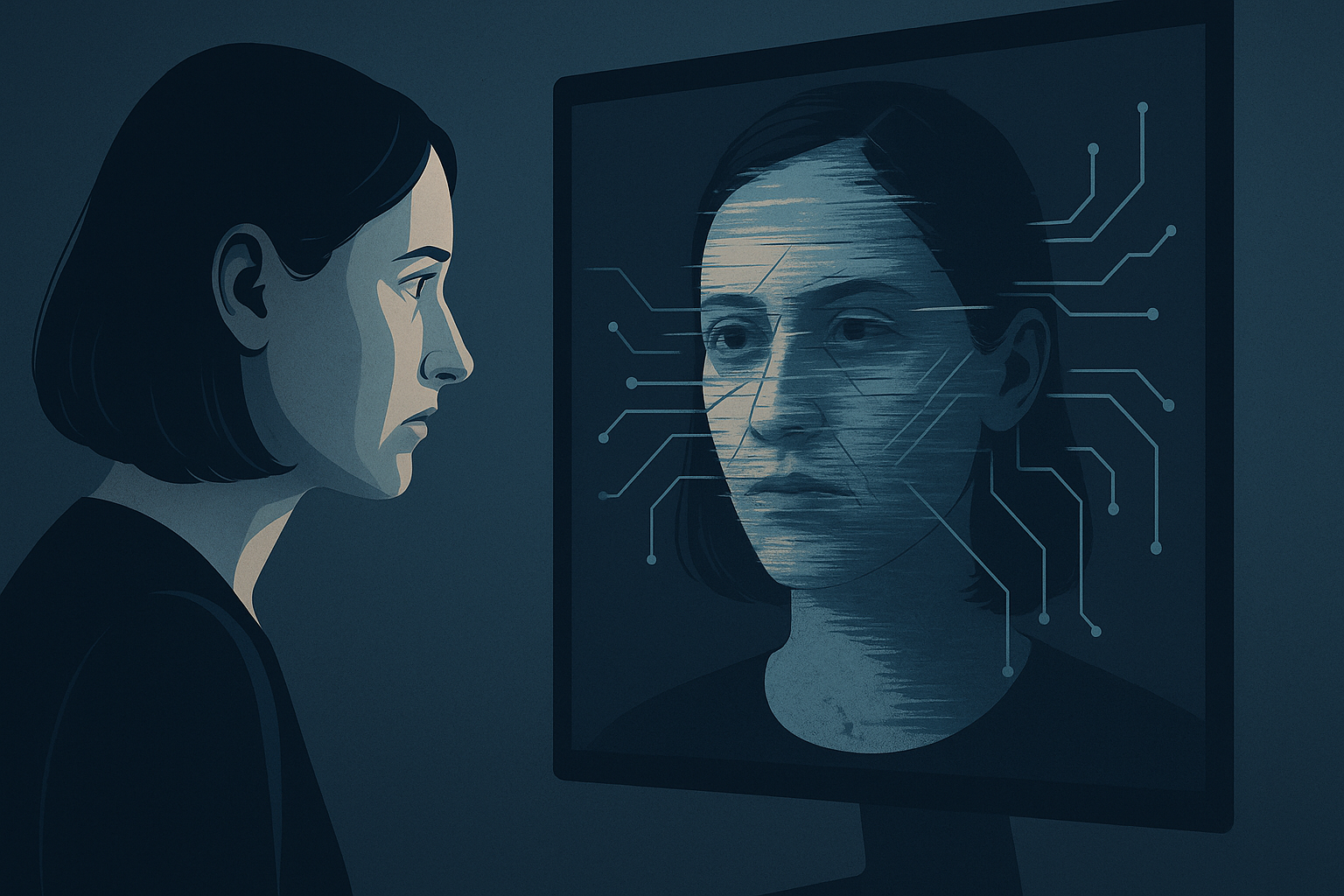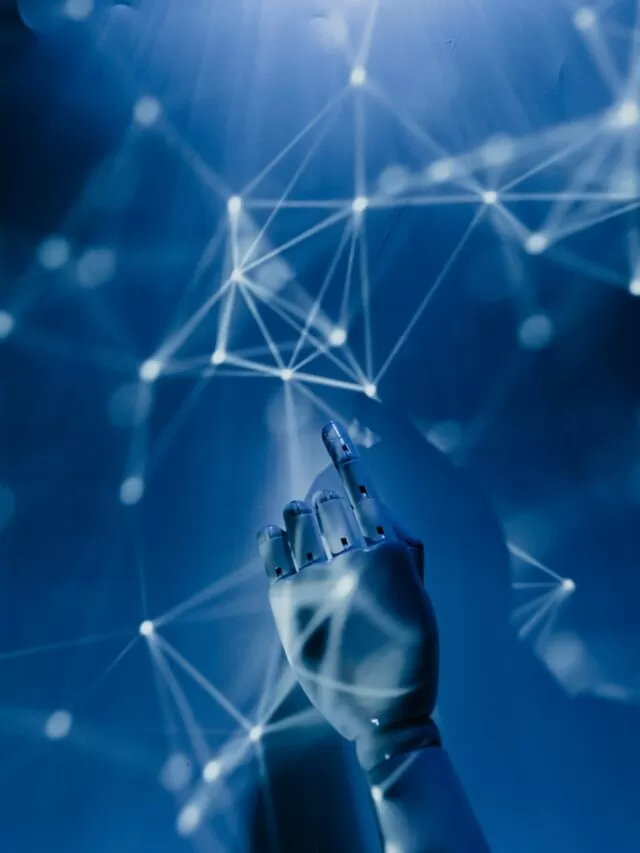The dispute over the raw material of the digital age has landed in Brazil. Folha vs. OpenAI copyright lawsuit marks a crucial turning point. Generative Artificial Intelligence, after all, is the new digital printing press, capable of replicating knowledge on a planetary scale. However, the license to use this "ink"—the vast human intellectual reserve—is now the subject of fierce dispute in the courts.
This article, therefore, dissects the foundations of this action and compares it to its main international precedent. Furthermore, it offers an analytical tool for legal practitioners navigating this uncharted territory.
The Folha vs. OpenAI Case: Allegations and Behind-the-Scenes in Brazil
In August 2025, Folha de S.Paulo filed a crucial lawsuit in São Paulo. The case was filed against OpenAI in the 3rd Corporate Court. Consequently, it inaugurated a highly relevant debate in the Brazilian judiciary. This debate unites technology and intellectual property. The lawsuit not only mirrors international disputes but also adapts them to the Brazilian legal reality. Thus, it establishes a battleground whose developments will be closely watched by the entire industry.
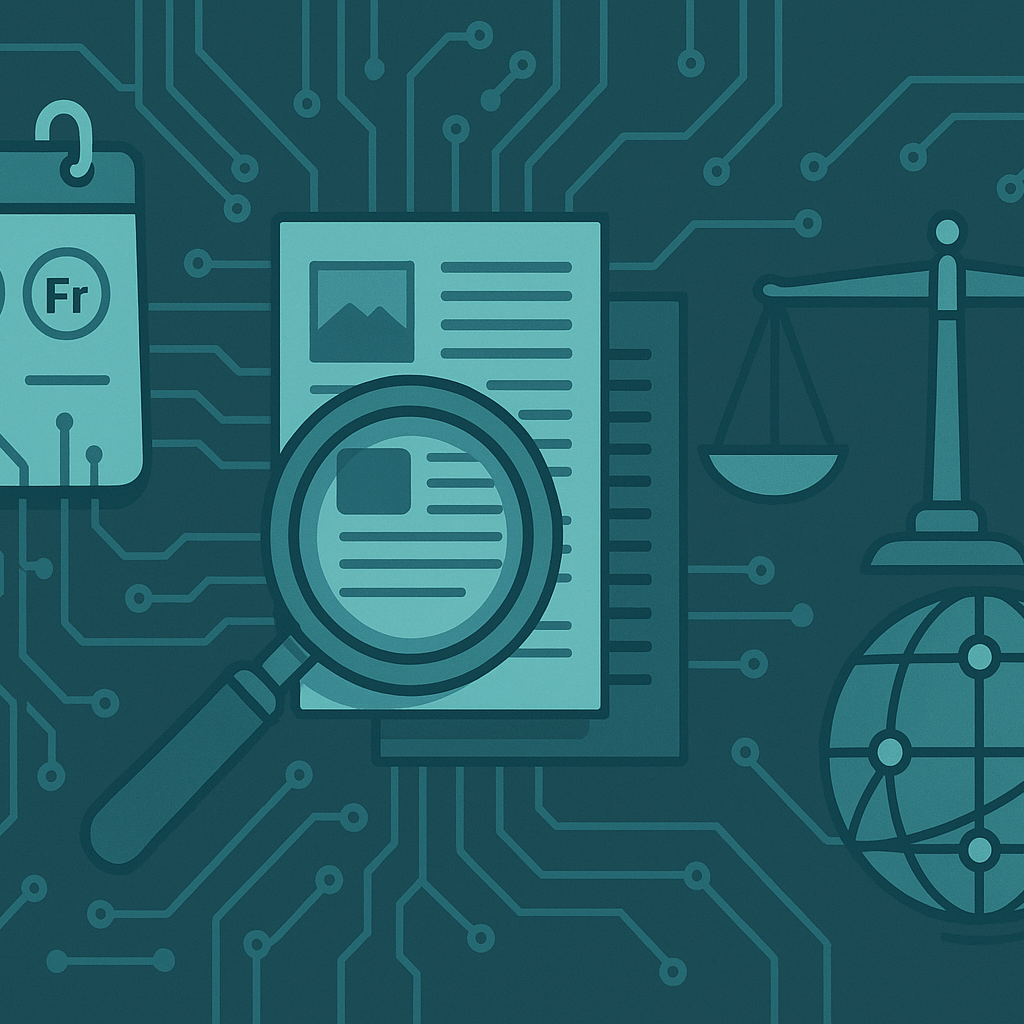
Folha's Thesis: Copyright Infringement and Unfair Competition
Folha's initial petition has two central pillars. First, massive copyright infringement. Secondly, the unfair competition practice. The main accusation is that OpenAI collected and used the outlet's news archives, without authorization or compensation, to train its language models, such as ChatGPT. Technical records indicate systematic data extraction, with thousands of accesses by OpenAI robots to Folha's website.
The argument, however, goes beyond training. Folha claims that ChatGPT acts as a substitute product. It provides summaries and reproductions of news reports, including those protected by copyright. paywall. This practice diverts the newspaper's audience and undermines its business model. Therefore, it constitutes unfair competition, as OpenAI profits from an input it didn't pay for. The requests are clear: cessation of use, destruction of the models and compensation, with a daily fine of R$ 100,000.
The “Secret of Justice”: A Relevant Procedural Battle
One of the first disputes in the case was procedural. OpenAI requested confidentiality for the case. The company argued the need to protect trade secrets, based on Article 206 of the Industrial Property Law. Folha, on the other hand, opposed the move. It defended the publicity of the events and stated that the request was intended to avoid a "dangerous precedent."
Judge Fábio Henrique Prado de Toledo granted OpenAI's request. He considered that the technical complexity justified the measure to ensure a comprehensive defense. Although procedural, this decision has profound implications. The battle for confidentiality creates an asymmetry of information. This makes it more difficult for Folha to prove how its content was used. The decision, in short, shifts the debate from a public sphere to a technical battle behind closed doors.
The Global Context: How the New York Times Case Defines the Battlefield
Folha's lawsuit is not an isolated event. On the contrary, it is part of a storm that has gathered abroad and is now reaching Brazil. The main precedent is the lawsuit filed by The New York Times against OpenAI and Microsoft in December 2023. This case promises to be one of the most important in the history of intellectual property.
The Fair Use Doctrine: OpenAI’s Main Shield in the US
In the United States, OpenAI's main defense is the doctrine of fair use (fair use). This exception to copyright allows the use of protected works under certain conditions. The analysis considers four factors, such as the purpose of the use and the effect on the market for the original work.
OpenAI argues that using content to train AI is transformative. In other words, the purpose is not to republish, but to extract patterns to build a new system. The NYT, however, disputes this view. The newspaper demonstrates that ChatGPT's results can compete directly with its original product.
Billion-Dollar Damages and Proof of Verbatim Copying
The scale of the NYT case is immense. The newspaper claims that millions of its articles were copied. Therefore, it is seeking damages that could reach billions of dollars in statutory damages.
The strongest evidence of the NYT is the examples of copying verbatim (word for word). In many cases, ChatGPT reproduces extensive excerpts from articles, bypassing the paywall of the newspaper. This evidence directly attacks the fourth factor of fair use. Consequently, it demonstrates a clear detriment to the NYT market and weakens OpenAI's defense.
Legal Analysis: Why the Brazilian Scenario is More Hostile to OpenAI
Importing the conflict to Brazil presents a unique legal ecosystem. These characteristics may make the legal environment more challenging for OpenAI. Indeed, simply transposing defense arguments may prove ineffective here.
The Non-Existence of “Fair Use” and the Limitations of Law 9.610/98
This is the most crucial turning point. Brazilian law does not have an open doctrine of fair use. In its place, the(http://www.planalto.gov.br/ccivil_03/leis/l9610.htm) establishes a limitative list of limitations in its article 46. These exceptions are specific and interpreted restrictively.
The activity of scraping massive commercial use does not fall under these hypotheses. This means that OpenAI's main legal shield in the US is largely non-existent in Brazil. The judicial analysis in Folha vs. OpenAI copyright lawsuit tends to be more direct. Was there unauthorized reproduction? Was the purpose commercial? Affirmative answers make the establishment of copyright infringement much more likely.
The “Big House Algorithm”: Value Extraction and the Precariousness of Journalism
Beyond dogmatic analysis, it's imperative to understand the sociological dimension of the conflict. As I argue in my work, what's at stake is a model of value extraction. Generative AI operates a massive transfer of wealth. The value generated by the work of journalists and artists is captured by technology platforms without due compensation.
This phenomenon, which I call the "Big House Algorithm," jeopardizes creative professions. It also threatens the sustainability of professional journalism. Folha's action, therefore, is a necessary reaction against this extractive model. It seeks to reaffirm a fundamental principle: innovation cannot destroy the source of knowledge that fuels it.
Intellectual Arsenal: Practical Implications for Digital Advocacy
This litigation scenario requires legal professionals to be prepared. They need to advise their clients with proactive and risk-mitigating strategies.
For Content Creators: Auditing, Contracts, and Technical Measures
Lawyers representing content creators should recommend a multifaceted approach. First, review of Terms of Service of websites, prohibiting the scraping for AI. Secondly, the implementation of robust technical measures, as files robots.txt restrictive. Furthermore, it is crucial to carry out audits to detect data extraction. Finally, the formation of consortia for collective licensing.
For AI Developers and Users: Due Diligence and Risk Mitigation
For companies using generative AI, advice should focus on due diligence of the origin of the dataIt is essential to question suppliers about their datasets. Equally important is to demand indemnity clauses in contracts. Internally, companies must create clear policies on the use of AIs, as detailed in my book(https://lantyer.com.br/direitoia ). Legal compliance has become a primary risk factor.
Conclusion: The Future of Knowledge and the Remuneration of Creation
THE Folha vs. OpenAI copyright lawsuit This is more than a legal dispute. It's a microcosm of the negotiations that will define how knowledge will be created and remunerated in the 21st century. We are at a crossroads. Either we move toward a licensed and ethical future, or we accept an extractive model that could exhaust the sources of creativity.
The outcome of this case will affect the viability of creative professions and the integrity of the information ecosystem. For legal practitioners, this is not just a new field of activity. It is the frontier where legal tradition is called upon to shape the most powerful knowledge tool ever created.
- The Meta Wall: Banning ChatGPT to Crown 'Meta AI' on WhatsApp
- Digital ECA and the New Legal Architecture for Minors in the Digital Environment: A Complete Guide
- Artificial Intelligence Regulation in Vietnam: A Mirror for Brazil's Challenges
- Folha vs. OpenAI: The Battle for Copyright in the Age of AI Comes to Brazil
- Law 15.123/2025 and deepfake: a new milestone in psychological violence with AI
